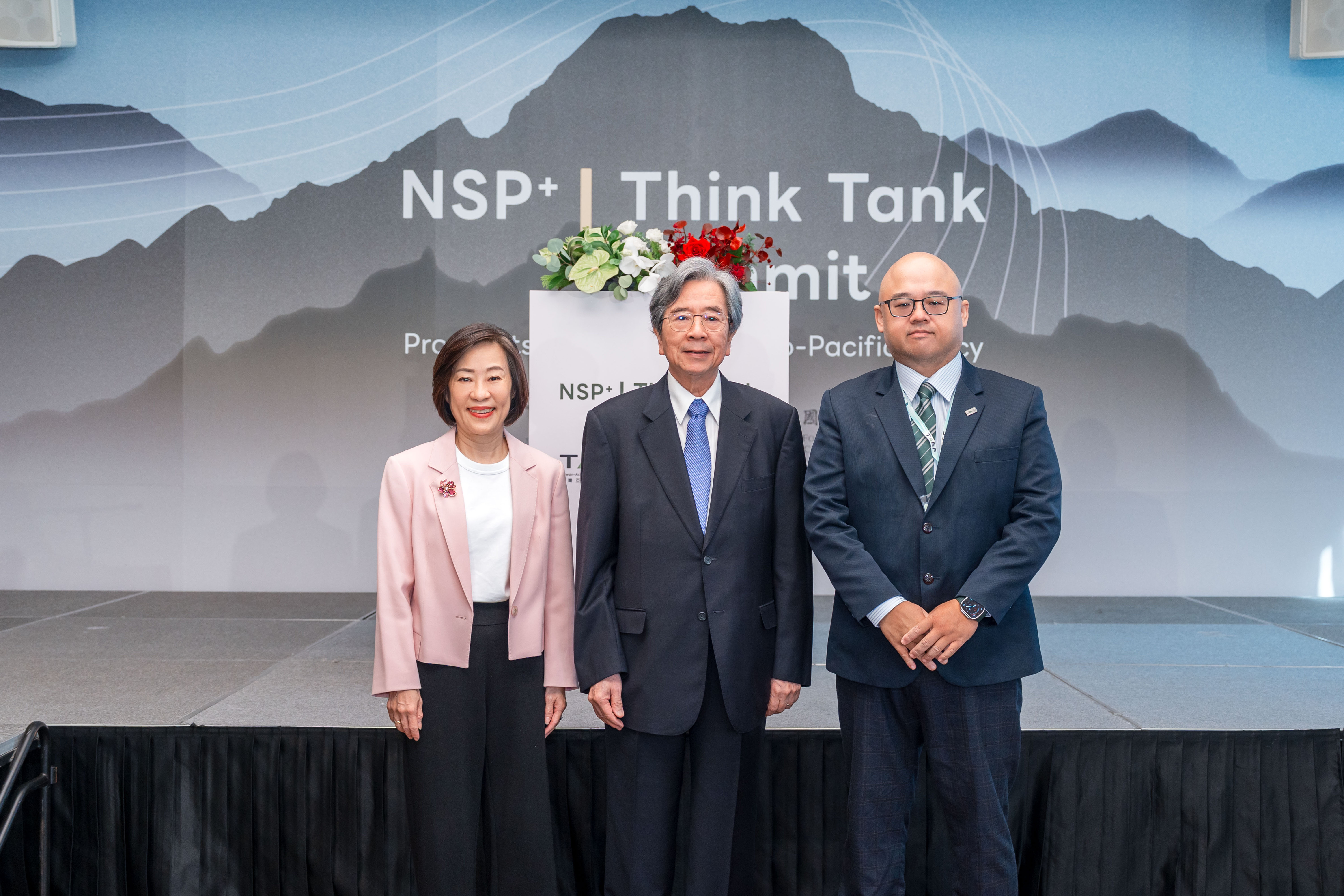
The inaugural “2025 NSP+ Think Tank Summit,” co-hosted by the Ministry of Foreign Affairs (MOFA) and the Taiwan-Asia Exchange Foundation (TAEF), was held on October 8, 2025, from 9:00 a.m. to 6:10 p.m. at the Grand Mayfull Hotel Taipei. Under the theme “Prospects for a Resilient Indo-Pacific Policy,” the summit brought together leaders from 15 international think tanks across Southeast Asia, Japan, India, the United States, and Europe, along with representatives from 8 Taiwan-based think tanks, to engage in in-depth dialogue on regional security, the democratic value chain, non-red supply chains, and friendship and reciprocity networks.
The NSP+ Think Tank Summit, described by TAEF as a new initiative following the Yushan Forum, represents an institutionalized mechanism to advance the three “Corridors for Civil Partnership” under the New Southbound Policy Plus (NSP+): the Think Tank Corridor, the NGO Corridor, and the Youth Corridor. Through this platform, TAEF seeks to consolidate the achievements of eight years of the New Southbound Policy and expand Taiwan’s cooperation with international think tanks that focus on Indo-Pacific strategic issues.
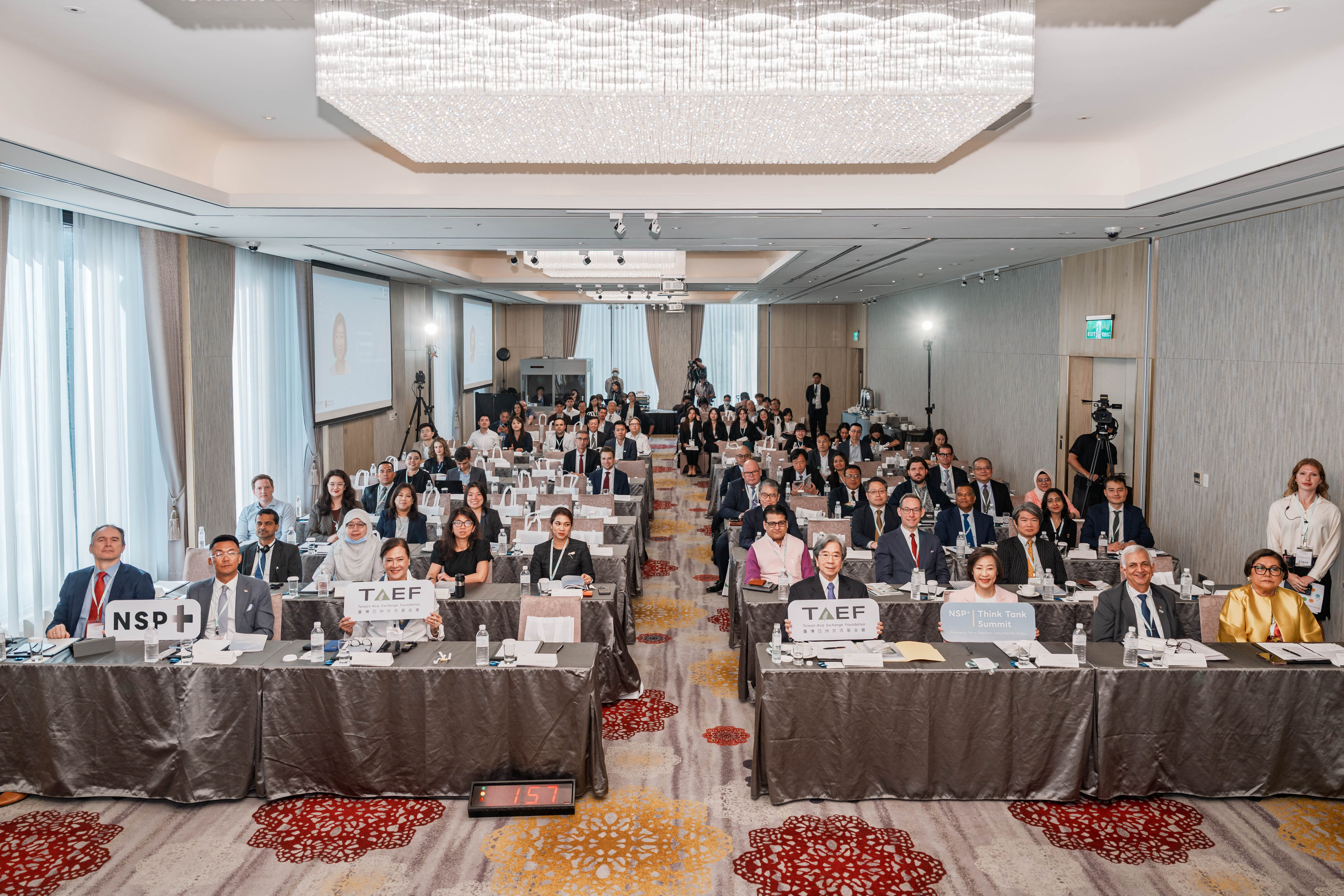
The opening ceremony featured remarks by Hsin-Huang Michael Hsiao, Chairman of TAEF; Cynthia Kiang, Deputy Minister of Economic Affairs; and Audrey Tang, Minister without Portfolio, Taiwan.
Chairman Hsiao emphasized that the summit is “a sister platform to the Yushan Forum, but with a sharper focus on the policy community,” highlighting its role in deepening international dialogue. He noted that under President Lai’s administration, TAEF has taken on the mission of advancing NSP+ by strengthening the role of think tanks, NGOs, and youth leaders—actors that he described as “essential forces in promoting peace, prosperity, and inclusive growth.” He added, “Security, democracy, technology, and people-centered development are shared concerns across the Indo-Pacific. Through open dialogue and cooperation, we can craft pragmatic and inclusive solutions to build a resilient, prosperous, and stable Indo-Pacific.”
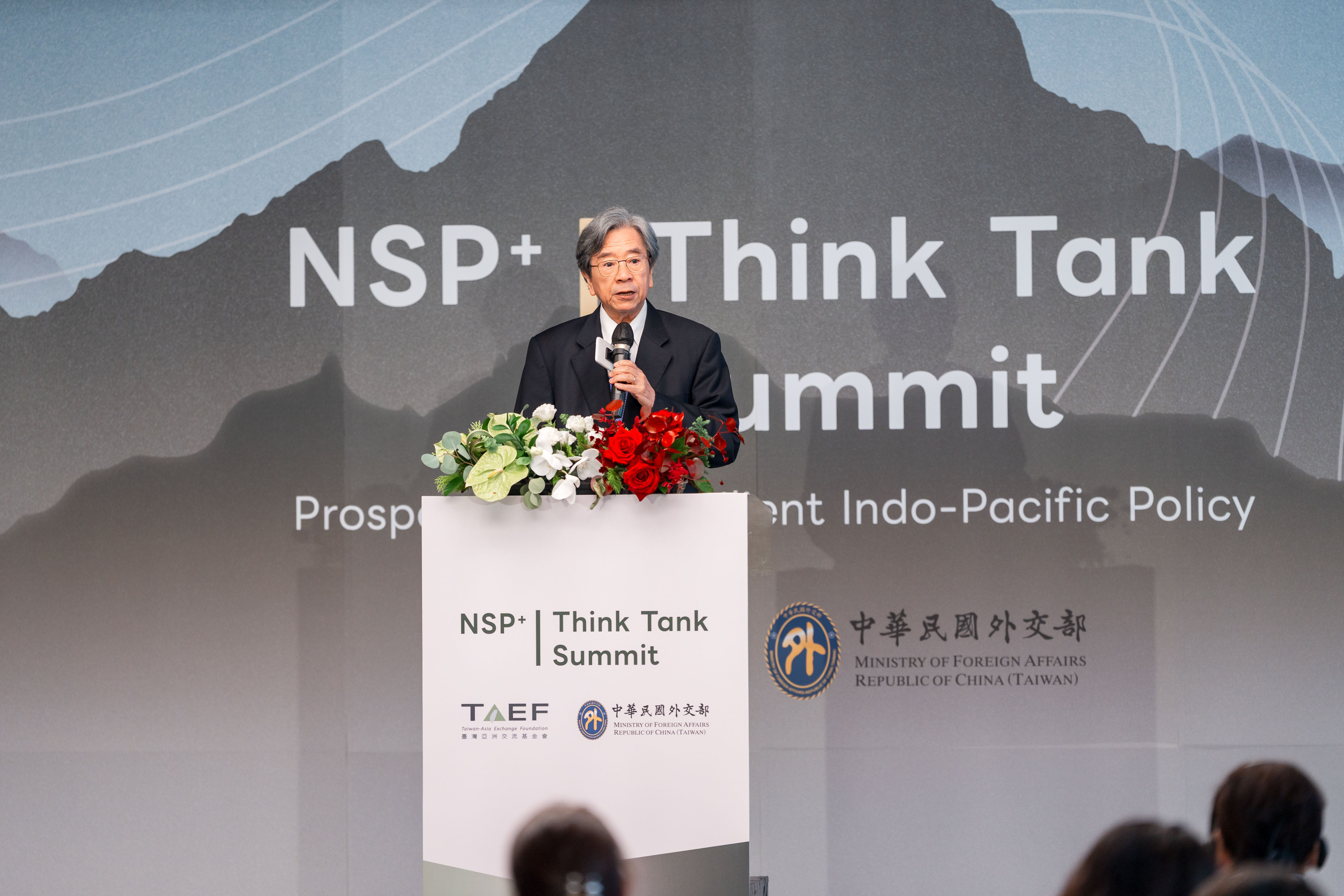
Deputy Minister Kiang reaffirmed Taiwan’s commitment to “an inclusive, resilient, and prosperous Indo-Pacific,” stating: “Taiwan must shift from being a participant to becoming an active connector, deepening partnerships with Indo-Pacific nations and building a more resilient global network.” Reviewing the New Southbound Policy since its launch in 2016, she noted that its scope has expanded to include “innovation, energy transition, supply chain resilience, and industrial upgrading,” reflecting Asia’s growing strategic importance. She stressed that Taiwan’s strong economic performance is due to “the flexibility of our industries, combined with the government’s proactive responses and collaboration with partners.” Highlighting five strategic sectors—semiconductors, artificial intelligence, national defense and security, cybersecurity and surveillance, and next-generation telecommunications—she underscored that “through open dialogue and cooperation, Taiwan demonstrates its determination and capacity to pursue supply chain de-risking and build a more secure and robust global tech ecosystem.” She further noted that the government has committed US$1.5 billion in special measures to strengthen industrial competitiveness and support key sectors
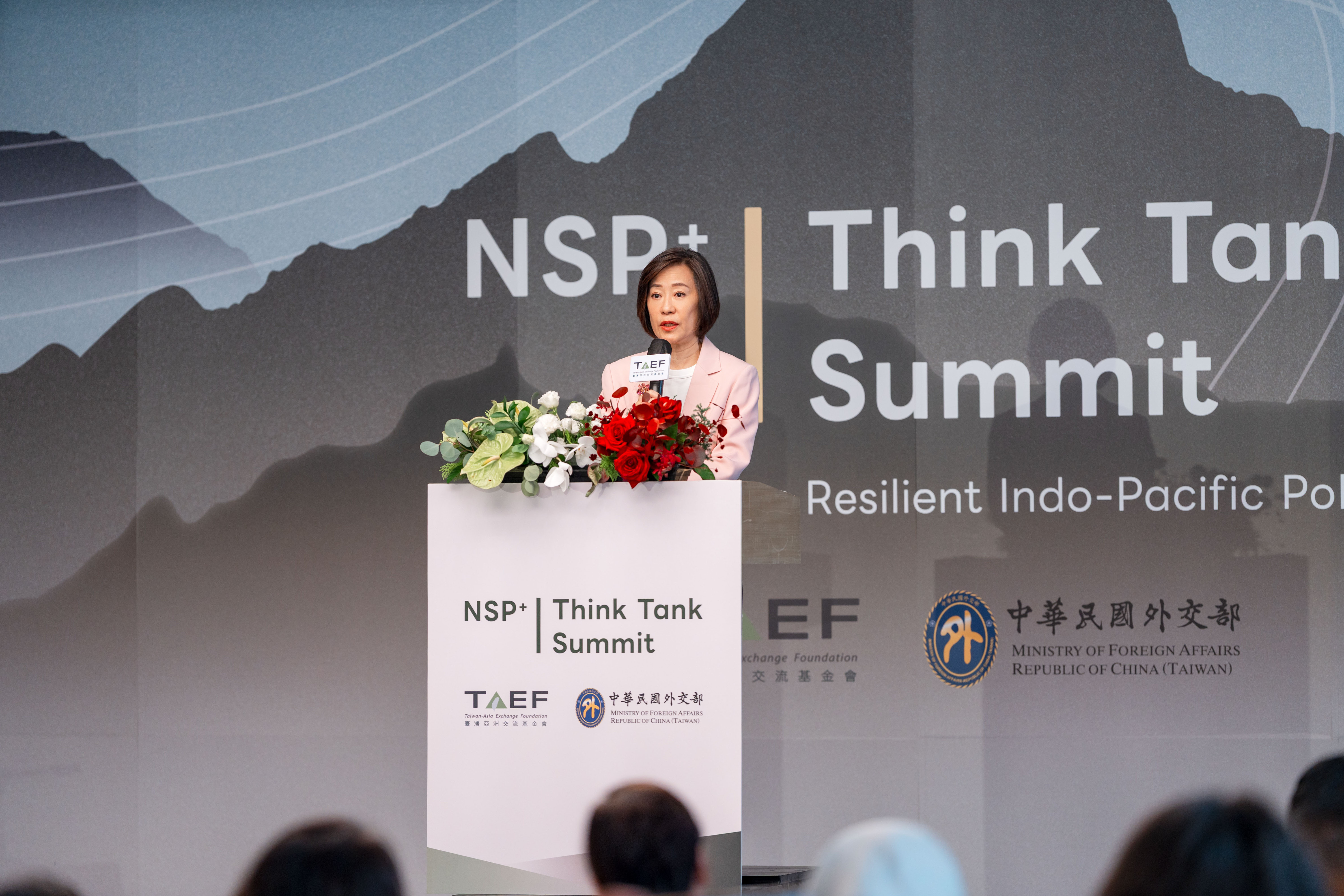
Audrey Tang noted that although she could not attend in person, “in advancing the New Southbound Policy, the NSP Plus, and Taiwan’s Indo-Pacific strategy, our hearts are closely aligned with TAEF and this summit.” She praised TAEF as a “young yet internationally respected think tank” and highlighted five key functions of think tanks: enlightening public policy, reminding policymakers, advocating reform, charting the future, and building cooperative networks. Tang further emphasized the need to harness not only smart power but also AI power — action and innovation power — through global cooperation and trusted technology. She urged think tanks to continue shaping international policy as “centers of thought and action, and, like Taiwan, forces for good in the world,” while expressing hope that the summit will strengthen Taiwan’s Indo-Pacific cooperation and advance people-centered development for freedom, democracy, peace, stability, and prosperity
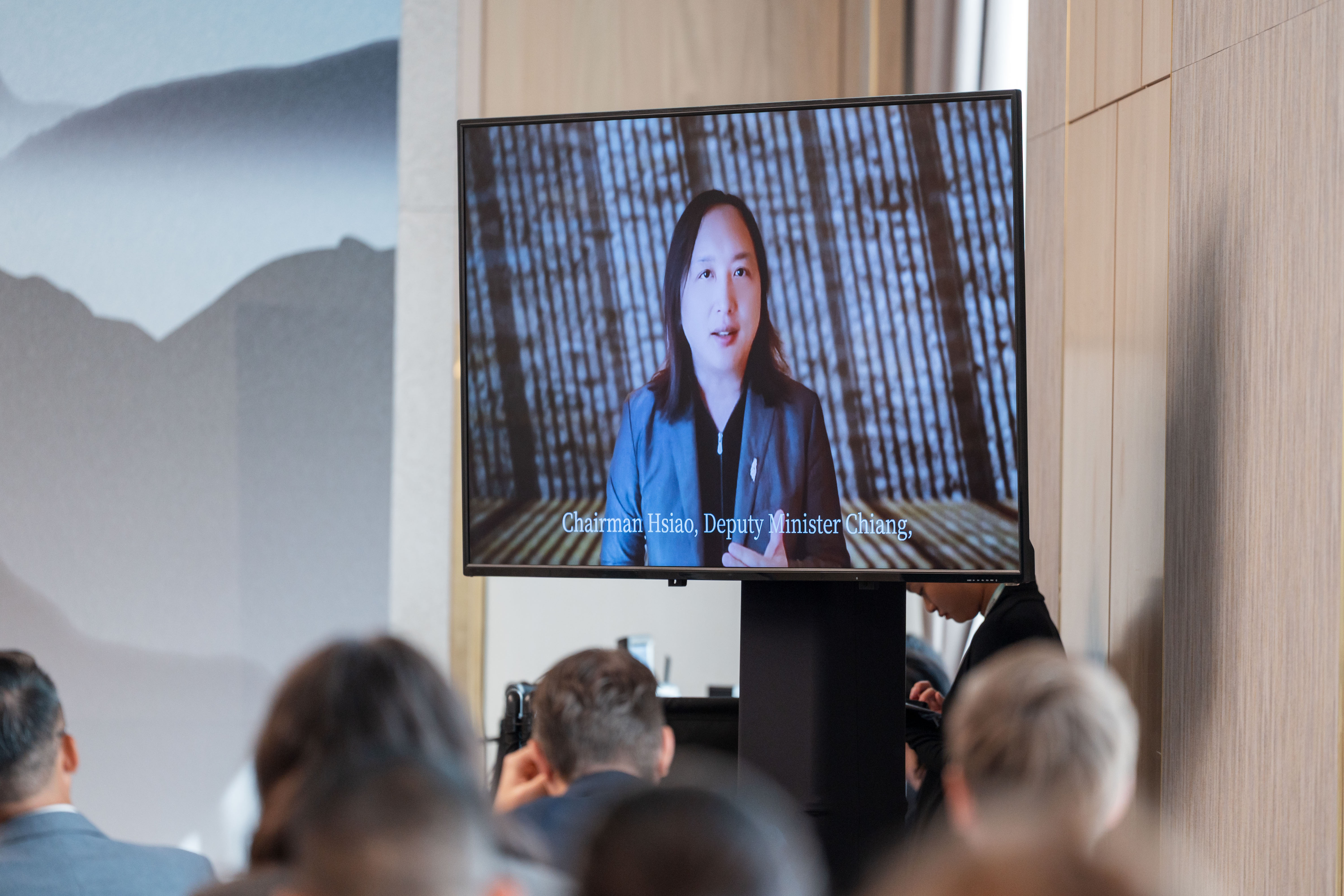
In addition to keynote speeches, TAEF also released the Outline of Taiwan’s Indo-Pacific Strategic Report, identifying four pillars—Security Resilience Chain, Democratic Value Chain, Non-Red Supply Chain, and Friendship and Reciprocity Chain—as the foundations of Taiwan’s future Indo-Pacific strategy and as the focus of this year’s summit discussions

The morning sessions began with Session I: Security Resilience Chain, moderated by Joshua Burgin, Founder of the Alliance for Global Security (AGS), United States. Speakers included Rear Admiral (ret.) Katsuya Yamamoto, Sasakawa Peace Foundation, Japan; Vice Admiral (ret.) Pradeep Chauhan, National Maritime Foundation, India; Niklas Svanstrom, Director of the Institute for Security and Development Policy (ISDP), Sweden; I-Chung Lai, President of the Prospect Foundation, Taiwan; and Ming-Shih Shen, Senior Research Fellow at INDSR, Taiwan. The panel addressed how to strengthen strategic readiness and resilience in an increasingly complex geopolitical landscape
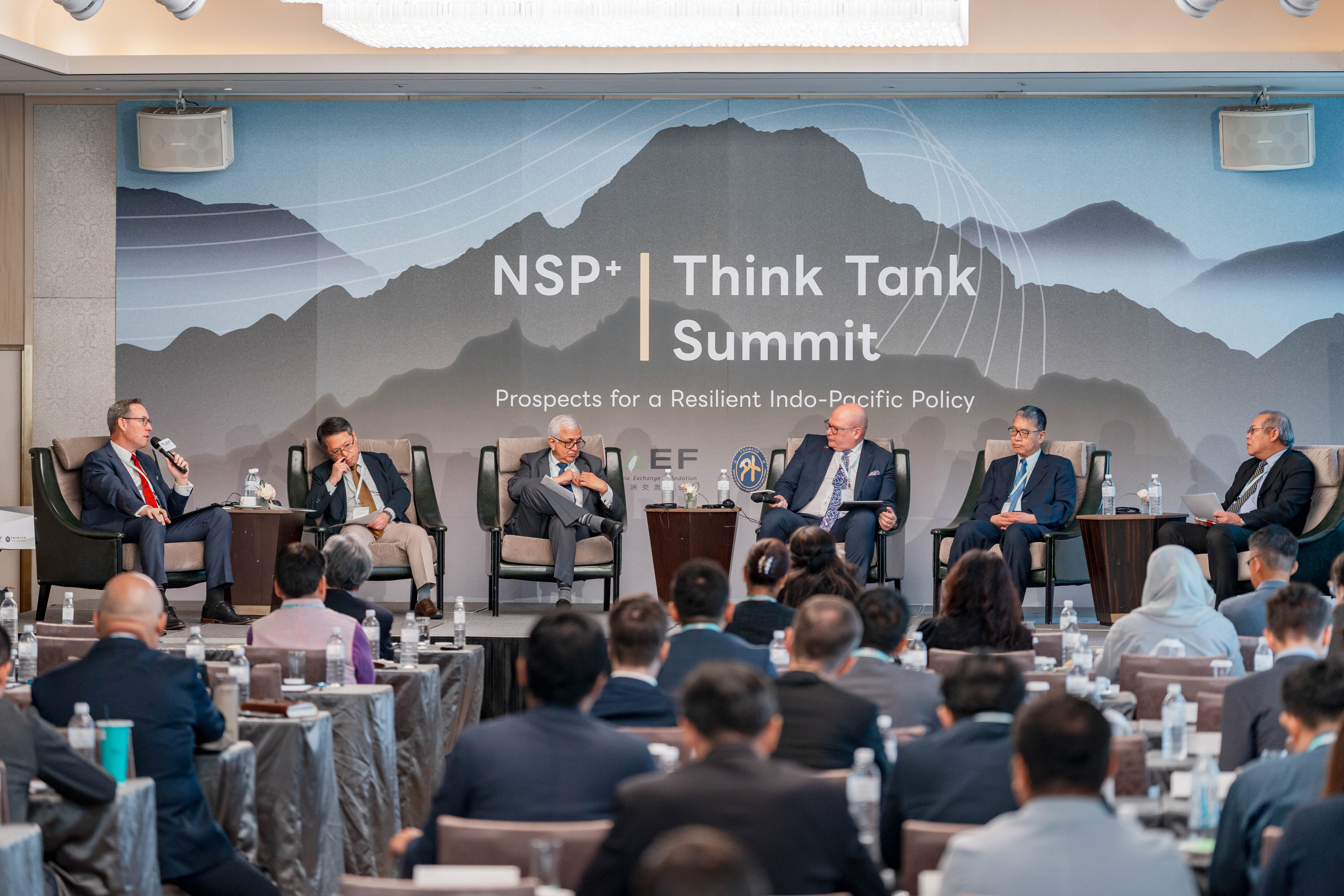
Session II: Democratic Value Chain was moderated by Chairman Hsin-Huang Michael Hsiao of TAEF, and featured James K.J. Lee, Vice President of the Taiwan Foundation for Democracy (TFD); Aira Azhari, Chief Executive Officer of the Institute for Democracy and Economic Affairs (IDEAS), Malaysia; Mohammad Hasan Ansori, Executive Director of the Habibie Center, Indonesia; Chihhao Yu, Co-Director of the Taiwan Information Environment Research Center (IORG); and Kartini Sunityo, Partnership Manager at Asia Centre, Thailand. Panelists underscored Taiwan’s role as a core partner in defending shared values across the Indo-Pacific and called on like-minded countries to safeguard democracy together
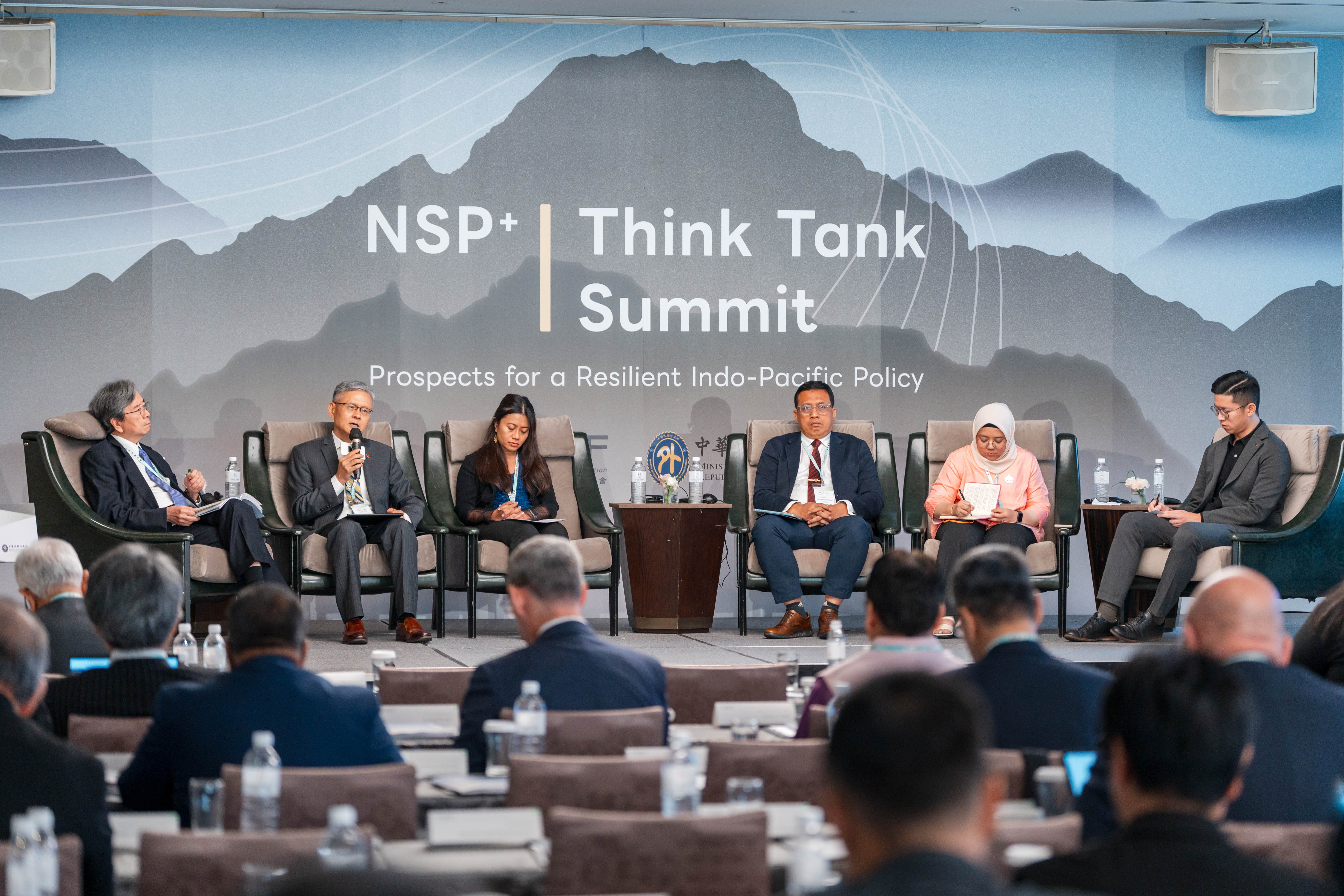
The afternoon opened with Session III: Non-Red Supply Chain, moderated by Hsien-Ming Lien, President of the Chung-Hua Institution for Economic Research (CIER). Panelists included Harsh V. Pant, Vice President of the Observer Research Foundation (ORF), India; Andrew Yeh, Executive Director of the China Strategic Risk Institute, UK; Yu-Jen Kuo, Vice President of the Institute for National Policy Research (INPR), Taiwan; Marcin Jerzewski, Head of the Taiwan Office of the European Values Center for Security Policy (EVC), Czech Republic, and Fellow of Visegrad Insight, Poland; and Jeremy Chih-Cheng Chang, CEO of the Research Institute for Democracy, Society, and Emerging Technology (DSET), Taiwan. Discussions focused on global supply chain restructuring and Taiwan’s role in de-risking and strengthening regional and European connectivity.
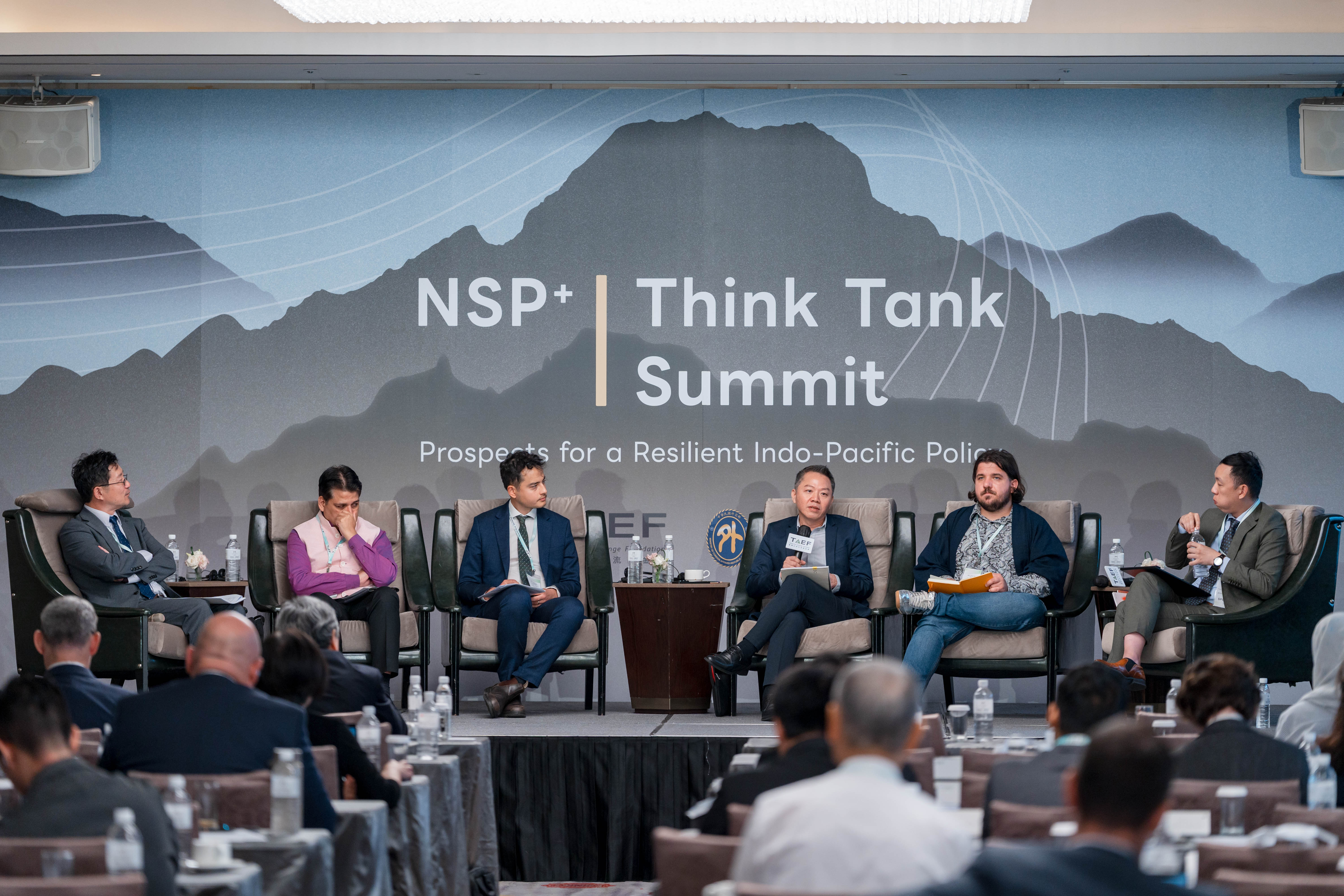
Session IV: Friendship and Reciprocity Chain was moderated by Dr. Sana Hashmi, Postdoctoral Fellow at TAEF. Speakers included Gloria Jumamil-Mercado, Chairperson and CEO of the Asian Center for Excellence in Development & Security, Philippines; Masato Seko, Senior Director at The Nippon Foundation, Japan; Yoshikazu Kato, Director of the Trans-Pacific Group, Japan; Satu Limaye, Executive Director of the East-West Center, United States; and Caroline Fried, Director of Research at the Center for Asia-Pacific Resilience and Innovation (CAPRI), Taiwan. The session highlighted the importance of leaders, networks, and communities in strengthening Indo-Pacific resilience.
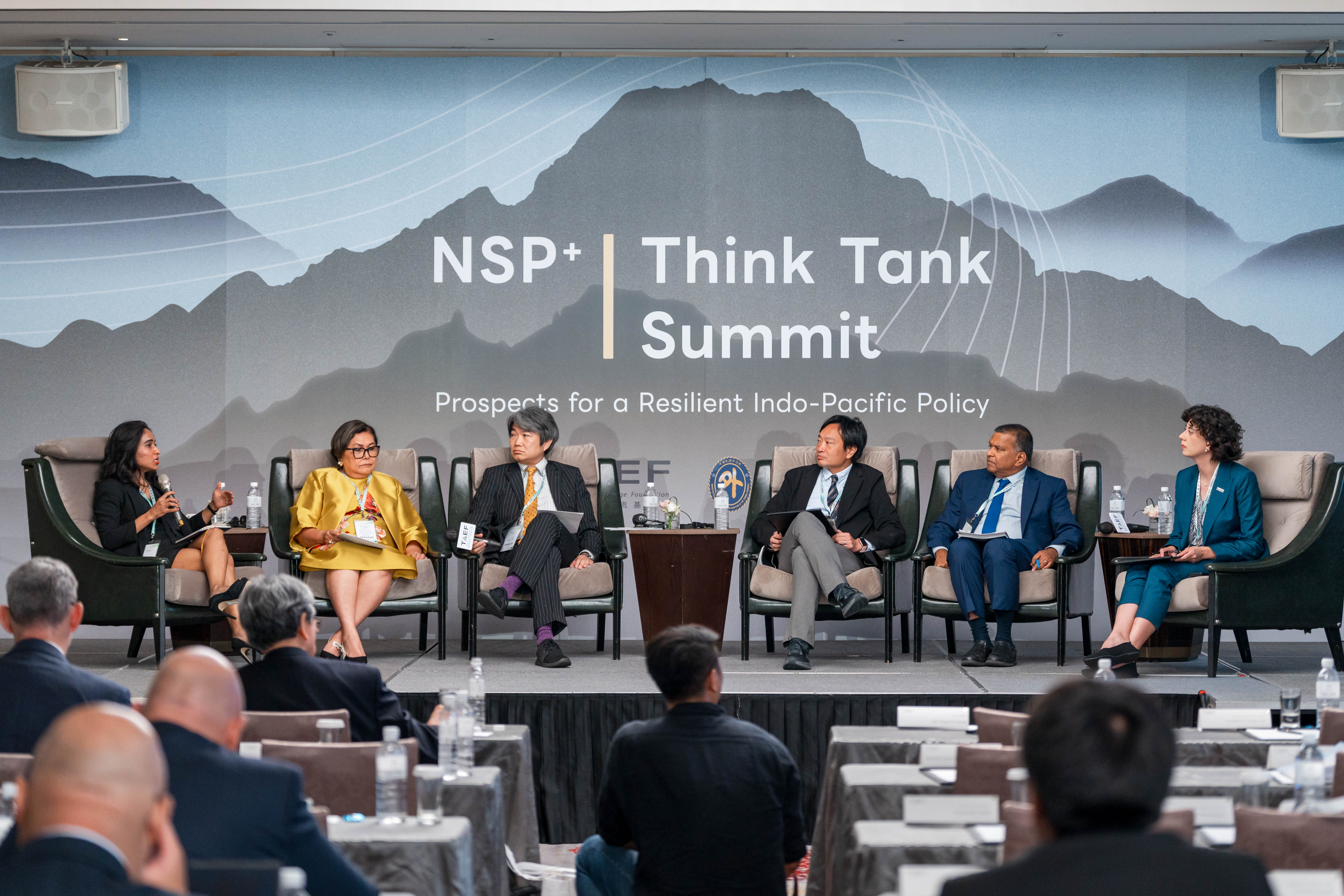
The closing Roundtable: Integrating Taiwan Into Indo-Pacific Strategies was chaired by Chairman Hsin-Huang Michael Hsiao, and joined by Feifan Lin, Deputy Secretary-General of Taiwan’s National Security Council; Vice Admiral (ret.) Pradeep Chauhan, NMF, India; Satu Limaye, East-West Center, United States; Masato Seko, The Nippon Foundation, Japan; and Alan H. Yang, Executive Director of TAEF. Panelists unanimously stressed that Taiwan is indispensable in regional strategies on security, technology, supply chains, and democratic values, and called for its deeper integration into Indo-Pacific frameworks.
